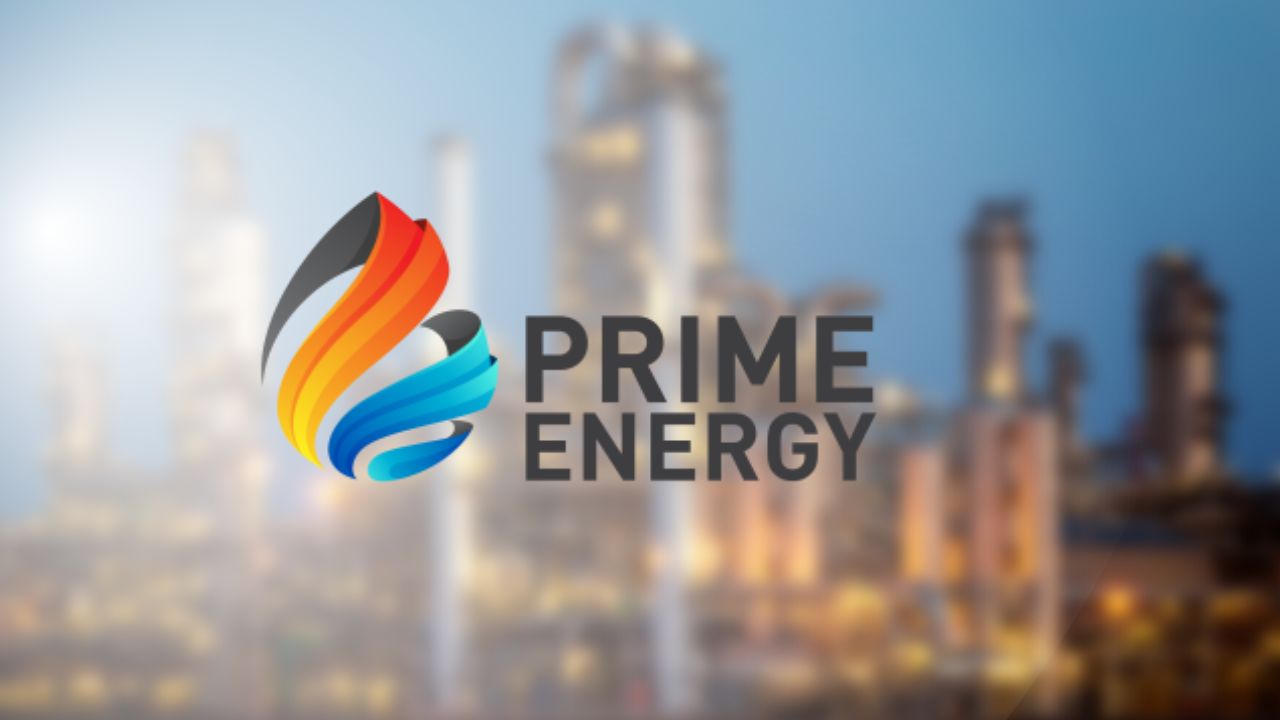
United States, New York, Oct. 28, 2024 (GLOBE NEWSWIRE) -- Biodegradable packaging is a convenient and sustainable method to safeguard fragile items that degrade easily in the environment. Biodegradable plastic and paper packaging are commonly used for transporting products and materials between locations, allowing logistics companies to transport goods over long distances and in different environmental conditions.
In line with sustainable development, logistic consumers opt for biodegradable paper and plastic packaging as it is beneficial for both human health and the environment. Biodegradable packaging made of paper and plastic serves to safeguard products by shielding them from water, dust, and various weather conditions. Introspective Market Research is excited to unveil its latest report, " Biodegradable Paper and Plastic Packaging Market " This in-depth analysis shows that the global Biodegradable Paper and Plastic Packaging market, valued at USD 13.
3 billion in 2023, is poised for substantial growth, expected to hit USD 31.6 billion by 2032. This growth trajectory aligns with a strong CAGR of 10.
1% during the forecast period from 2024 to 2032. Biodegradable paper and plastic packaging are environmentally friendly materials intended to naturally break down in the environment without emitting any harmful substances. Crafted from plant-based polymers or recycled paper, these environmentally friendly packaging choices decompose organically, ultimately lessening waste and pollution.
They provide an eco-friendly option to conventional packaging. Packaging is essential in providing customers with protection, convenience, and information. issues related to environmental pollution and global warming are causing concern.
Concerns surrounding sustainability have been emphasized. Consumers are increasingly conscious of environmental concerns. Challenges and supports eco-friendly products.
The packaging industry is experiencing a necessity to bring innovation to its products. Packaging made from recyclable materials that can naturally decompose. Plastic reduces carbon emissions and helps protect the environment.
This essay focuses on current situations. Concerning the potential applications of eco-friendly plastics for sustainable packaging needs. The essay covers a range of subjects.
applications for biodegradable plastics, the process of biodegradation in packaging, how they are used to function within dynamic packaging, and packaging that can be ingested. Additionally, close attention is given to materials that can break down organically. Plastic products that are easily available for sale in the market.
The use of environmentally friendly materials and methods is key to sustainable packaging. Environmentally conscious packaging is packaging that supports social and economic aspects. considering both current operational needs and future environmental standards.
The focus is on upholding sustainability throughout the entire lifespan of a product, rather than solely decreasing its environmental impact. item. The growing use of plastic packaging in the food sector is causing significant concern among consumers.
Download Sample 250 Pages of Fertility Testing Devices Market Report@ https://introspectivemarketresearch.com/request/17769 The environment is significantly impacted by the extensive use of plastic. To reduce the substantial quantity of plastic packaging film industry has dedicated significant effort towards creating films of high quality.
having both biodegradable characteristics as well as mechanical and barrier properties. Plastics that can naturally break down in the environment through biodegradation. provide a practical approach to decrease the ongoing accumulation of polymeric substances in the environment that cannot currently break down naturally.
Biodegradable plastics are commonly ignored. able to decompose naturally. Leading Factors Driving the Biodegradable Paper and Plastic Packaging Market: Growing Demand from Consumers for Products That are Packaged Using Eco-Friendly Materials The significant growth of the biodegradable paper and plastic packaging market is primarily fueled by consumer desire for eco-friendly packaging choices.
Consumers are now placing a greater emphasis on sustainability when buying products due to a heightened awareness of environmental issues, with a growing recognition of the harmful impact of packaging waste on the environment. Traditional plastic packaging, which is a major cause of waste and pollution, has led to a greater demand for environmentally friendly options that can reduce harm to the environment. Estimations suggest that by 2050, the amount of plastic waste in the oceans may surpass that of fish, leading environmentally conscious consumers and businesses to look for sustainable packaging choices that are both convenient and environmentally friendly.
Biodegradable packaging options like paper and certain biodegradable plastics help by reducing landfill waste and minimizing the environmental impact associated with traditional materials. Biodegradable materials, unlike conventional plastics, can naturally decompose and return to the environment without leaving harmful residues. This is particularly crucial in sectors such as food and beverage, where there is a high volume of packaging waste due to the widespread use of disposable items.
, companies are investing in biodegradable materials to comply with consumer expectations and legal obligations for sustainable practices. Customers are more inclined to buy from companies that demonstrate commitment to environmental protection, and packaging serves as a tangible display of these values. Biodegradable or compostable packaging in products appeals to eco-conscious consumers by bridging the gap between wanting to buy and making the purchase.
Budget constraints limit consumers' adoption of sustainable packaging options, as the higher cost of biodegradable packaging often deters them, despite being well-informed. However, it is expected that costs will decrease due to higher production and technological progress, thus making sustainable packaging more accessible. Rising Environmental Concerns Towards Plastic Pollution Rising concerns over plastic pollution are a significant driver of the growing need for biodegradable paper and plastic packaging.
With an estimated 19-23 million tonnes of plastic waste entering aquatic ecosystems each year, aquatic ecosystems are being flooded with millions of tons of plastic waste, leading to critical global issues like the deterioration of natural habitats, decline in biodiversity, and disturbance to essential ecosystems. The increase in environmental effects has prompted increased recognition from governments, companies, and consumers, prompting a shift towards sustainable packaging choices. Packaging made from materials that can break down naturally offers a promising solution to the increasing problem of plastic pollution.
More stringent regulations around the world are driving the growing need for eco-friendly paper and plastic packaging that can biodegrade. Officials in various countries have implemented limits on single-use plastics and are promoting the use of eco-friendly packaging materials. The biodegradable packaging sector has gained advantages from these regulations and the growing demand from environmentally conscious customers.
Companies are increasingly integrating sustainable practices into their operations by opting for biodegradable materials to contribute to global sustainability initiatives. Industries like food and beverage, retail, and personal care are adopting biodegradable packaging due to increasing consumer interest in sustainable products. Biodegradable packaging materials such as plant-based plastics, paper, and natural fibers are versatile and can be utilized in a wide range of applications.
These items also can be composted and can help reduce carbon footprint, which is ideal for decreasing plastic pollution in marine and land ecosystems. "Research made simple and affordable – Trusted Research Tailored just for you – IMR Knowledge Cluster" https://www.imrknowledgecluster.
com/ What are the Key Opportunities for Biodegradable Paper and Plastic Packaging Market? There are numerous significant opportunities for growth in the market of biodegradable paper and plastic packaging. The increasing e-commerce sector presents a significant opportunity, driving up the need for packaging. Biodegradable packaging options allow e-commerce companies to reduce their environmental impact and meet consumer demand for sustainable practices when compared to traditional packaging methods.
The food and drink industry offer a significant opportunity for environmentally friendly packaging alternatives. Growing interest from consumers in eco-friendly disposable packaging has driven a surge in the popularity of products such as biodegradable containers, wrappers, and straws. There is a strong need for biodegradable materials in the food service sector, particularly for single-use items, to reduce environmental harm while still offering the convenience of disposable products.
What are the Key Challenges Biodegradable Paper and Plastic Packaging Market? The biodegradable paper and plastic packaging sector face numerous challenges primarily due to issues with expenses, infrastructure, and regulatory inconsistencies. A significant obstacle is the high production cost associated with biodegradable packaging materials. Biodegradable options, unlike regular plastic, frequently require special resources and methods such as the use of plant-derived bioplastics, even though they are more cost-effective and simpler to manufacture in large quantities.
This leads to higher expenses for consumers, which hampers broad acceptance and poses challenges for businesses to compete with cheaper, traditional packaging options. The absence of adequate waste management and composting facilities is hindering the growth of the market. While biodegradable materials are designed to break down more easily in natural environments, many products require specific industrial composting conditions that are not easily accessible.
In many places, there is a lack of adequate infrastructure for collecting, managing, and recycling biodegradable packaging. As a result, biodegradable packaging is often thrown away in regular landfills, where the environment is not ideal for decomposition, reducing the environmental benefits of these products. Do you need any industry insights on Biodegradable Paper & Plastic Packaging Market, Make an enquiry now >> https://introspectivemarketresearch.
com/inquiry/17769 Key Manufacturers Market key players and organizations within a specific industry or market that significantly influence its dynamics. Identifying these key players is essential for understanding competitive positioning, market trends, and strategic opportunities. Amcor plc (Australia) BASF SE (Germany) Biopac UK Ltd (United Kingdom) Cardia Bioplastics Limited (Australia) Georgia-Pacific LLC (USA) Huhtamaki Group (Finland) Innovia Films Limited (United Kingdom) Kruger Inc.
(Canada) Mondi plc (Austria) NatureWorks LLC (USA) Novamont S.p.A.
(Italy) Smurfit Kappa Group (Ireland) Stora Enso Oyj (Finland) Sulapac Ltd (Finland) Tetra Pak International S.A. (Switzerland) In August 2023, Amcor a global leader in developing and producing responsible packaging solutions, today announced the North American launched of curbside-recyclable AmFiberTM Performance Paper packaging, part of the company's AmFiber portfolio.
Prequalified by How2Recycle, performance paper meets the repulpability standards for curbside recycling, allowing brands to provide consumers with more sustainable end-of-life outcomes for packaging. In April 2023, Huhtamaki announced a groundbreaking innovation in sustainable flexible packaging, introducing its unique mono-material technology that combines recyclability, robust product protection, and affordability. The company’s new blueloopTM solutions, available in Paper, PE, and PP Retort, redefine industry standards, addressing the growing demand from customers and consumers for environmentally friendly packaging options.
Key Segments of Market Report By Type Plastics made from starch are biodegradable materials made from renewable resources such as corn, wheat, or potato starch, making them environmentally friendly for use. These materials can undergo biodegradation, breaking down into water, carbon dioxide, and biomass under the right circumstances. They are utilized in packaging for items ranging from food packaging to disposable cutlery, bags, and provide the benefit of being biodegradable, aligning with consumer preferences for eco-friendliness compared to traditional plastics.
The abundance of starch-based plastics is significant, with a large portion of commercial plastics being composed of starch-based materials. Additionally, advancements in technology have improved the mechanical and barrier characteristics of starch-based plastics, allowing them to compete effectively with other types of plastics. Additionally, the use of legal support and increased awareness through initiatives promoting green packaging materials made from starch-based plastics is growing in various sectors, establishing this as a prominent market segment for biodegradable packaging.
By Material It is crucial to use biodegradable plastics as traditional petroleum plastics degrade slowly and negatively impact the environment. Recently, biodegradable plastics have now the top choice for consumers, businesses, and regulatory authorities as they can decompose into non-harmful substances through natural breakdown methods, helping to reduce pollution and waste creation. Such packaging options often utilize materials derived from renewable sources such as plant starches, cellulose, and other biopolymers, thereby enhancing sustainability.
Advancements in technology have enhanced the characteristics of these polymers, including their barrier properties, flexibility, and durability, particularly with the use of biodegradable plastics. The primary industries that are profiting from this improvement include food packaging, personal care items, and the healthcare field. Due to the lasting effects of harmful products on the environment and stricter regulations on plastic waste from governments and international agencies, the demand for biodegradable packaging materials is expected to increase steadily, fostering creativity and sustainable packaging advancements.
Consumer awareness regarding environmental issues is driving the shift towards biodegradable plastics, as people increasingly seek sustainable alternatives in their purchasing decisions. This growing trend not only promotes eco-friendly practices but also encourages manufacturers to invest in innovative solutions that minimize ecological footprints. As a result, the biodegradable plastics market is poised for significant growth, contributing to a cleaner, more sustainable future.
If you require any specific information that is not covered currently, we will provide the same as a part of the customization >> https://introspectivemarketresearch.com/custom-research/17769 By Region The Asia Pacific region is expected to lead in market share for biodegradable paper and plastic packaging for specific reasons. Additionally, there has been a significant rise in the need for eco-friendly packaging materials in the area due to rapid economic development spurred by commercialization, speedy urbanization, and population expansion.
Nations like China, India, and Japan are enacting more stringent regulations to eradicate plastics, which is resulting in a rise in the adoption of biodegradable packaging materials. There is a growing concern among the public, resulting in an increased focus on environmental issues, prompting manufacturers and businesses to prioritize the utilization of biodegradable packaging materials. The Asia Pacific region is a fitting location for biodegradable packaging because of its substantial manufacturing capabilities, progress in biopolymer technology and packaging, and commitment to sustainable packaging.
While the market is still changing, Asia Pacific continues to play a key role in influencing sustainable packaging trends worldwide. Comprehensive Offerings: Historical Market Size and Competitive Analysis (2017–2023): Detailed assessment of market size and competitive landscape over the past years. Historical Pricing Trends and Regional Price Curve (2017–2023): Analysis of historical pricing data and price trends across different regions.
Market Size, Share, and Forecast by Segment (2024–2032): Projections and detailed insights into market size, share, and future growth by segment. Market Dynamics: In-depth analysis of growth drivers, restraints, opportunities, and key trends, with a focus on regional variations. Market Trend Analysis: Evaluation of emerging trends that are shaping the market landscape.
Import and Export Analysis: Examination of trade patterns and their impact on market dynamics. Market Segmentation: Comprehensive analysis of market segments and sub-segments, with a regional breakdown. Competitive Landscape: Strategic profiles of key players across regions, including competitive benchmarking.
PESTLE Analysis: Evaluation of the market through Political, Economic, Social, Technological, Legal, and Environmental factors. PORTER’s Five Forces Analysis: Assessment of competitive forces influencing the market. Industry Value Chain Analysis: Examination of the value chain to identify key stages and contributors.
Legal and Regulatory Environment by Region: Analysis of the legal landscape and its implications for business operations. Strategic Opportunities and SWOT Analysis: Identification of lucrative business opportunities, coupled with a SWOT analysis. Conclusion and Strategic Recommendations: Final insights and actionable recommendations for stakeholders.
About Us: Introspective Market Research is a premier global market research firm, leveraging big data and advanced analytics to provide strategic insights and consulting solutions that empower clients to anticipate future market dynamics. Our team of experts at IMR enables businesses to gain a comprehensive understanding of historical and current market trends, offering a clear vision for future developments. Our strong professional network with industry-leading companies grants us access to critical market data, ensuring the generation of precise research data tables and the highest level of accuracy in market forecasting.
Under the leadership of CEO Mrs. Swati Kalagate, who fosters a culture of excellence, we are committed to delivering high-quality data and supporting our clients in achieving their business goals. The insights in our reports are derived from primary interviews with key executives of top companies in the relevant sectors.
Our robust secondary data collection process includes extensive online and offline research, coupled with in-depth discussions with knowledgeable industry professionals and analysts. Related Report Links: Paper Packaging Market : Paper Packaging Market Size is Valued at USD 383.79 Billion in 2024, and is Projected to Reach USD 551.
0 Billion by 2032, Growing at a CAGR of 4.10% From 2024-2032. Automatic Tea Bag Packaging Equipment Market : Automatic Tea Bag Packaging Equipment Market is Projected to Reach USD 32.
2 Billion by 2032, Growing at a CAGR of 5.3% From 2024-2032. Agricultural Packaging Market : Agricultural Packaging Market Size Was Valued at USD 6.
47 Billion in 2023, and is Projected to Reach USD 10.39 Billion by 2032, Growing at a CAGR of 5.04% From 2024-2032.
Food Service Packaging Market : Food Service Packaging Market Size Was Valued at USD 132.80 Billion in 2023 and is Projected to Reach 272.18 Billion by 2032, Growing at a CAGR of 8.
3% From 2024-2032. Next Generation Packaging Market : Next Generation Packaging Market Size Was Valued at USD 26925.82 Million in 2023 and is Projected to Reach USD 49004.
61 Million by 2032, Growing at a CAGR of 6.88% From 2024-2032. Food Contact Specialty Paper Market : Food Contact Specialty Paper Market Size Was Valued at USD 3.
74 Billion in 2023, and is Projected to Reach USD 5.85 Billion by 2032, Growing at a CAGR of 5.1% from 2024-2032.
Converting Paper Market : Converting Paper Market Size Was Valued at USD 420.2 Million in 2023, and is Projected to Reach USD 592.9 Million by 2032, Growing at a CAGR of 3.
9% From 2024-2032. Commercial Paper Market : The global commercial paper market was valued at USD 2.11 trillion in 2023 and is expected to reach USD 3.
8 trillion by 2032, growing at a CAGR of 6.76% from 2024 to 2032. Specialty Paper Market : Specialty Paper Market Size Was Valued at USD 17.
5 Billion in 2023, and is Projected to Reach USD 27.62 Billion by 2032, Growing at a CAGR of 5.20% From 2024-2032.
Smart Packaging Market : Smart Packaging Market Size Was Valued at USD 23.25 Billion in 2023, and is Projected to Reach USD 40.36 Billion by 2032, Growing at a CAGR of 6.
32% From 2024-2032. IMR Knowledge Cluster Reports: Innovations in Agricultural Equipment Global Healthcare Cold Chain Logistic Market Alternative Fuels For Aviation: Biofuels, Hydrogen, And Beyond Coffee Industry in Europe: Coffee Subscriptions and Growth Opportunities Consumer Electronics Market Contact Us: Canada Office Introspective Market Research Private Limited, 138 Downes Street Unit 6203- M5E 0E4, Toronto, Canada. APAC Office Introspective Market Research Private Limited, Office No.
401, Saudamini Commercial Complex, Kothrud, Pune, India 411038 Ph no: +91-81800-96367 / +91-7410103736 Email: [email protected] LinkedIn | Twitter | Facebook | Instagram Ours Websites : https://introspectivemarketresearch.com | https://imrknowledgecluster.
com/knowledge-cluster | https://imrtechsolutions.com | https://imrnewswire.com/ | https://marketnresearch.
de |.














